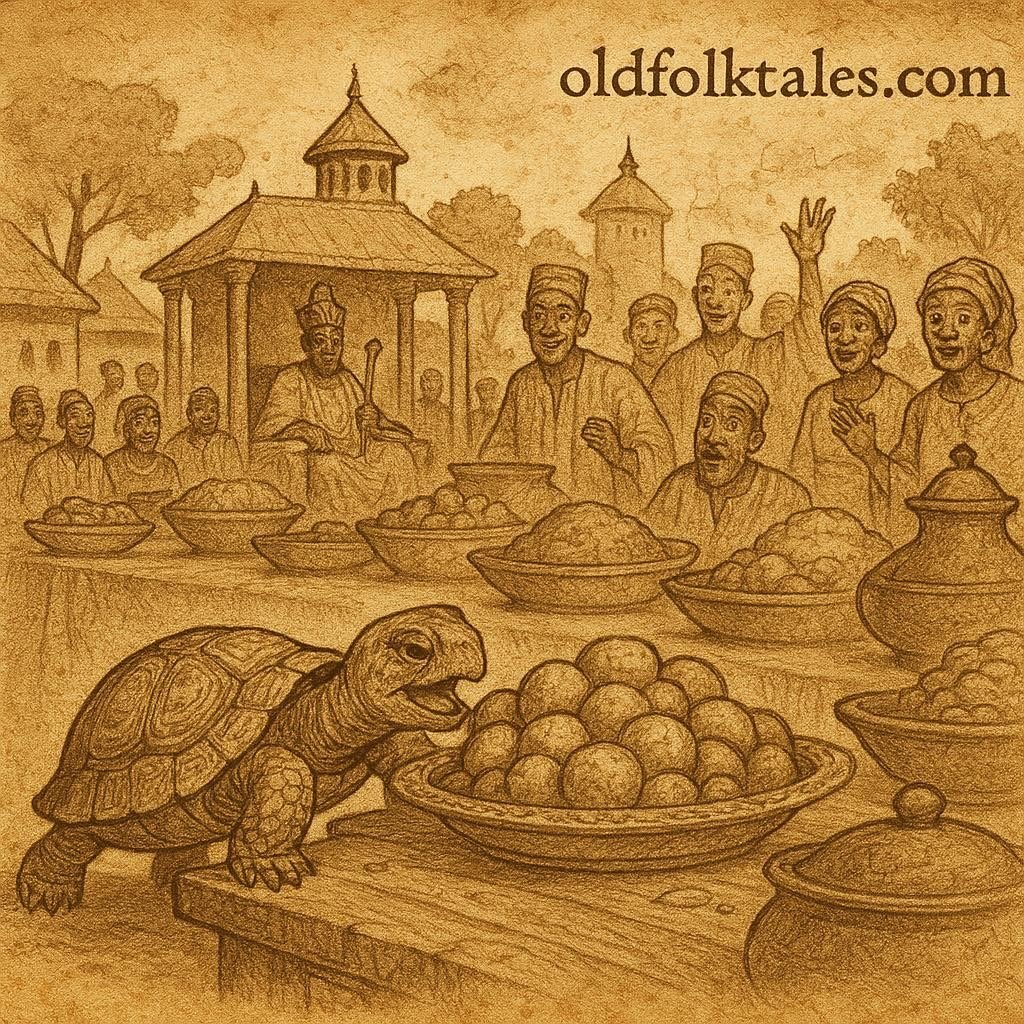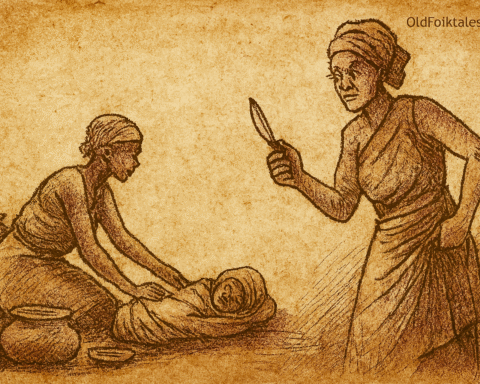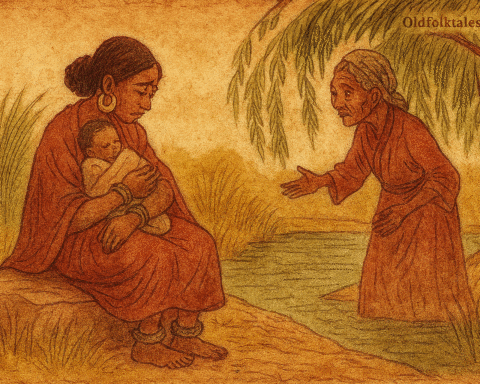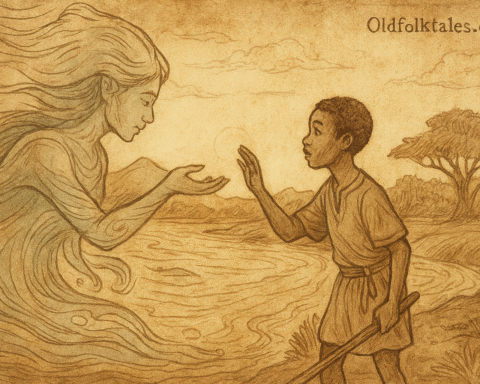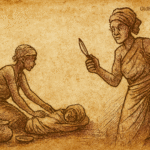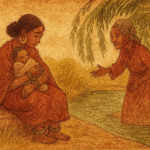In the days when the talking drum carried news faster than the wind, there lived a trickster known as Ìjàpá, the Tortoise. Among all the creatures in the land, none matched Ìjàpá in cunning. He had a sharp tongue, a belly that longed for food, and a mind that twisted like the paths of the forest.
One season, the great Aláàfin, the king of the land, announced a mighty feast. Hunters brought bushmeat, farmers brought yam, and palm wine flowed like rivers. The king declared that every creature was welcome, but only those who came with gifts of their own would be allowed into the palace. The people rejoiced, for it was a chance to honor the king and share in his bounty.
When Ìjàpá heard of the feast, his eyes shone like fireflies at dusk. But he had nothing to bring, for laziness was his second skin. He thought to himself, “If I go empty-handed, the guards will laugh me away. But if I can find a trick, I will eat until my shell cracks.”
As the day of the feast drew near, Ìjàpá visited his neighbors one by one. He went first to the farmer and said, “My good friend, let me carry your yam to the palace, for I walk with honor, and the king will see your name praised.” The farmer, pleased by the words, handed over the yam. Then Ìjàpá went to the hunter. “Brother, let me deliver your bushmeat to the king. I will sing your name before him.” The hunter, flattered, gave Ìjàpá the meat. One by one, Ìjàpá gathered gifts from the people, each believing he was their loyal messenger.
When the day came, Ìjàpá dressed himself in fine palm fronds, tied his head with a strip of cloth, and carried the gifts proudly. At the palace gates, the guards asked, “Ìjàpá, what do you bring?” Ìjàpá puffed his chest and replied, “I bring yam from my farm, meat from my hunt, and palm wine from my grove.” The guards let him pass, and he entered the king’s court as if he owned the ground.
The feast began. Drummers beat the bàtá drum, women sang oríkì, and the air filled with the scent of roasted yam and spicy soup. Ìjàpá ate greedily, stuffing his mouth, licking his shell, and drinking palm wine until his eyes rolled. He boasted loudly, “No one in this land is greater than Ìjàpá! Even the king welcomes me like a prince.”
But fate has ears sharper than the hunter’s dog. One by one, the true owners of the gifts arrived at the palace. The farmer entered, bowing low, but when the king asked of his yam, the guards said, “Ìjàpá brought it.” The hunter came, proud of his bushmeat, but the king said, “Ìjàpá claimed it as his.” The palm tapper came, but his wine was already gone, swallowed by Ìjàpá.
The people murmured. The king’s eyes grew dark. He struck the ground with his staff and declared, “Ìjàpá, you have eaten with a lying mouth. The food you claimed as yours belongs to others. Such deceit cannot be left unpunished.”
The guards seized Ìjàpá. They tied him and carried him outside. For his greed and cunning, he was denied the rest of the feast. To shame him, they placed him by the gate, where all who entered or left could see his swollen belly. The drummers mocked him with a song:
“Ìjàpá the trickster,
His belly is full,
But his name is empty.”
From that day, the people of the land no longer trusted Ìjàpá. Though he still wandered with his crooked wisdom, none gave him gifts, and he often sat hungry while others feasted.
Moral Lesson of The Trickster Tortoise and the King’s Feast
Greed and lies may open the door to a banquet, but truth will always close it. The story of Ìjàpá teaches that honesty and hard work are the true paths to respect. To cheat others is to cheat oneself, for shame lasts longer than hunger.
Knowledge Check on The Trickster Tortoise and the King’s Feast
Who was Ìjàpá in Yoruba folklore, and what was he most known for?
Ìjàpá, the Tortoise, was a trickster in Yoruba folklore, famous for his cunning, deceit, and endless hunger.What condition did the king place on those who wished to attend the feast?
The king declared that only those who brought gifts of their own would be allowed into the palace.How did Ìjàpá manage to gather food for the feast without working for it?
He tricked his neighbors into giving him their gifts, pretending he would present them in their names, but claimed them as his own.What happened when the true owners of the gifts arrived at the palace?
They revealed Ìjàpá’s lies, and the king exposed him for his deceit before everyone.What punishment did Ìjàpá receive at the king’s feast?
He was tied up, denied more food, placed at the gate for all to mock, and left in shame with a swollen belly.What key moral does the folktale of Ìjàpá teach about honesty?
It teaches that lies and greed may bring temporary gain, but only truth and honesty bring lasting respect.
Cultural Origin
This tale comes from the Yoruba people of West Africa, where folktales of Ìjàpá the Tortoise are used to teach children values such as honesty, humility, and respect for community.
